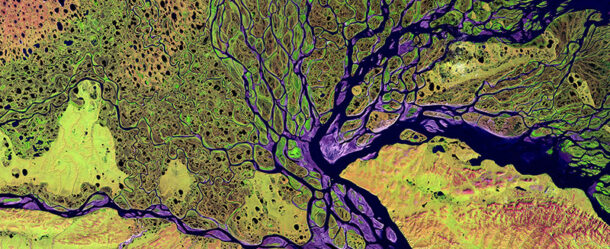
Ahead of COP28, the International Center for Advocates Against Discrimination (ICAAD) is calling for a new legal framework to support climate-displaced persons and guarantee their human rights are respected.
ICAAD’s advocacy briefing outlines how the protection of climate-displaced persons can be advanced based on the right to life with dignity – a tenet of the International Covenant of Civil and Political Rights (ICCPR). Combining this principle with existing laws and policies that address the climate crisis and cross-border migration offers new pathways, ICAAD argues, to ensure that those in climate-frontline communities will not be neglected.
Being able to protect and support the millions of people on the move due to climate impacts is a defining challenge of our time, with the UN estimating there could be 1.2 billion climate-displaced people by 2050. However, international legal protections do not currently exist.
“It’s frustrating to see how major carbon emitters are let off the hook – both in terms of their failure to meet carbon reduction targets but also their lack of leadership in climate mobility justice. The climate crisis adds an unmistakable layer to the many reasons why people choose to migrate, and international law needs to be responsive to the changing landscape. Otherwise, we risk leaving millions of people behind,” said Erin Thomas, ICAAD Director + Change Facilitator.
In the Pacific, many islands may become uninhabitable in the coming decades, yet there is no legal clarity on how these communities will be protected. This has brought rise to strategic litigation over the past several years. In 2022, claimants from the Torres Strait Islands won a landmark case at the UN Human Rights Committee, which found that the Australian government violated their human rights due to sustained climate inaction.
Building on recent cases, defining the right to life with dignity in the context of the climate crisis can provide a pathway to protect climate-displaced people. ICAAD proposes that this right is violated when an individual is deprived of, or risks being deprived of:
- Life or access to basic necessities of life, such as potable water, food and shelter;
- Security from serious illness or injury, whether physical or psychological;
- Something that is fundamental to an individual’s identity, conscience, or the exercise of their human rights and of the particular social group they belong to, including being able to engage in cultural practices.
Based on this definition, if there is a reasonable chance that an individual’s right to life with dignity will be violated within their lifetime, then they should be entitled to protection and should not be deported back to their home country.
This framework came together from discussions with over 40 activists and researchers, grounded in the experience of Indigenous and frontline climate activists from eight Pacific Island countries, as well as pro bono legal support from Clifford Chance and King, Wood and Mallesons.
“Climate change is already creating human rights abuses, especially for those already migrating without access to dignified migration pathways. As the crisis worsens, it’s important to know how the right to life with ‘dignity’ applies to climate mobility, and what it means beyond Eurocentric frameworks,” said Dr. Olivia Yates, Advocacy Policy & Research Advisor at Worldvision.
There are several ways that this standard could be implemented in law, whether through strategic litigation at the UN Human Rights Committee, becoming incorporated into national or regional policies, or integrated into an optional protocol to the 1951 Refugee Convention. ICAAD’s advocacy briefing will be followed by a full technical paper that will set out the legal standard in more detail as well as pathways to implementation.
Ahead of COP28, ICAAD and partners are calling for climate mobility justice to feature on the agenda, with discussions around how to expand protections for climate-displaced persons to ensure their dignity is upheld now and into the future.
“The right to life with dignity is a helpful concept because it recognizes the universal discourse of climate displacement at its personal level affecting lives of human beings with rights and dignity,” said Ravi Prasad, co-founder of the Global Green Recovery Collaborative.
“This recognition is an important stepping stone to achieve a Green Recovery which promotes the principles of justice, equity and equality where people and the planet must coexist acknowledging each other’s rights.”


